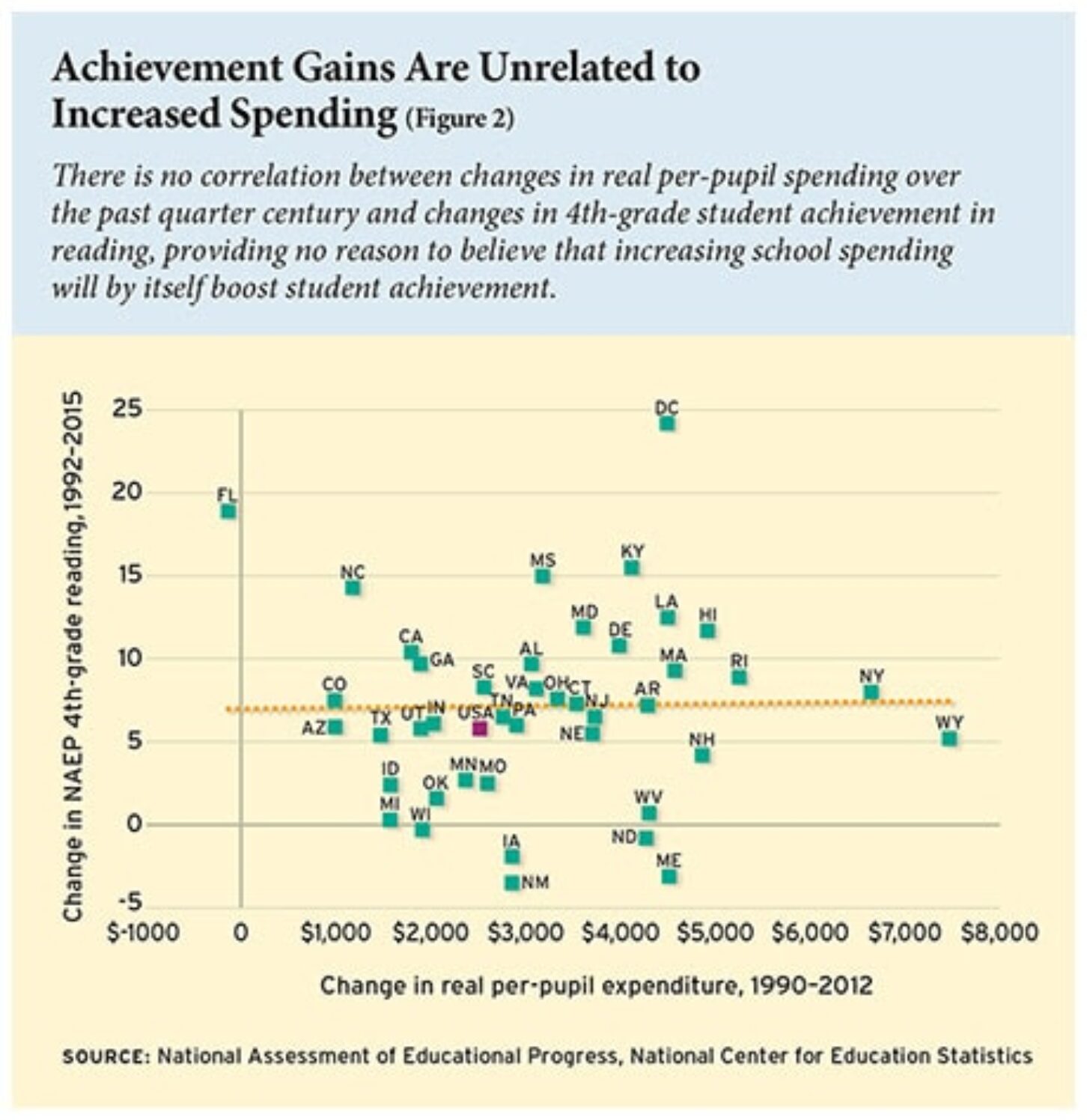
Fifty years ago, James S. Coleman published a groundbreaking education report that many call the fountainhead for those committed to evidence-based education policy. Among other things, Coleman found that variations in per-pupil expenditure had little correlation with student outcomes.
Even to this day, there remains the simple question as to whether, other things equal, just adding more money to schools will systematically lead to higher achievement. Figure 2 shows the overall record of states during the past quarter century. Changes in real state spending per pupil are uncorrelated with changes in 4th-grade student achievement in reading. Similar results are obtained in math and in both math and reading at the 8th-grade level. Clearly, states have changed in many other ways than just expenditure, but there is no reason to conclude from these data that just providing money will by itself boost student achievement.
There now appears to be a general consensus that how money is spent is much more important than how much is spent. In other words, the research does not show that money never matters or that money cannot matter. But, just providing more funds to a typical school district without any change in incentives and operating rules is unlikely to lead to systematic improvements in student outcomes. That is what Coleman found, and that is what recent research says.
Read about it here: http://educationnext.org/what-matters-for-student-achievement/.
Fifty years ago, James S. Coleman published a groundbreaking education report that many call the fountainhead for those committed to evidence-based education policy. Among other things, Coleman found that variations in per-pupil expenditure had little correlation with student outcomes.
Even to this day, there remains the simple question as to whether, other things equal, just adding more money to schools will systematically lead to higher achievement. Figure 2 shows the overall record of states during the past quarter century. Changes in real state spending per pupil are uncorrelated with changes in 4th-grade student achievement in reading. Similar results are obtained in math and in both math and reading at the 8th-grade level. Clearly, states have changed in many other ways than just expenditure, but there is no reason to conclude from these data that just providing money will by itself boost student achievement.
There now appears to be a general consensus that how money is spent is much more important than how much is spent. In other words, the research does not show that money never matters or that money cannot matter. But, just providing more funds to a typical school district without any change in incentives and operating rules is unlikely to lead to systematic improvements in student outcomes. That is what Coleman found, and that is what recent research says.
Read about it here: http://educationnext.org/what-matters-for-student-achievement/.
